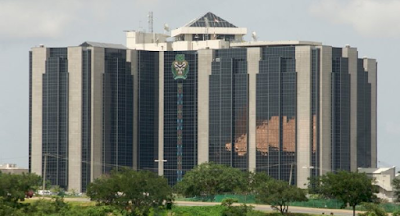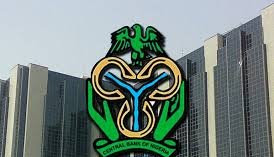
41 Banned Items: Nigerian Government to Dump CBN’s Forex Policy

Recall that
earlier in the year, the Central Bank of Nigeria (“CBN”) banned 41 items from
access to the Official Foreign Exchange Market. The items include the
following:
earlier in the year, the Central Bank of Nigeria (“CBN”) banned 41 items from
access to the Official Foreign Exchange Market. The items include the
following:
1.
Rice
Rice
2.
Cement
Cement
3. Margarine
4. Palm
kernel/Palm oil products/vegetables oils
kernel/Palm oil products/vegetables oils
5. Meat
and processed meat products
and processed meat products
6. Vegetables
and processed vegetable products
and processed vegetable products
7. Poultry
chicken, eggs, turkey
chicken, eggs, turkey
8. Private
airplanes/jets
airplanes/jets
9. Indian
incense
incense
10. Tinned
fish in sauce(Geisha)/sardines
fish in sauce(Geisha)/sardines
11. Cold
rolled steel sheets
rolled steel sheets
12. Galvanized
steel sheets
steel sheets
13. Roofing
sheets
sheets
14. Wheelbarrows
15. Head
pans
pans
16. Metal
boxes and containers
boxes and containers
17. Enamelware
18. Steel
drums
drums
19. Steel
pipes
pipes
20. Wire
rods (deformed and not deformed)
rods (deformed and not deformed)
21. Iron
rods and reinforcing bard
rods and reinforcing bard
22. Wire
mesh
mesh
23. Steel
nails
nails
24. Security
and razor wine
and razor wine
25. Wood
particle boards and panels
particle boards and panels
26. Wood
Fibre Boards and Panels
Fibre Boards and Panels
27. Plywood
boards and panels
boards and panels
28. Wooden
doors
doors
29. Toothpicks
30. Glass
and Glassware
and Glassware
31. Kitchen
utensils
utensils
32. Tableware
33. Tiles-vitrified
and ceramic
and ceramic
34. Textiles
35. Woven
fabrics
fabrics
36. Clothes
37. Plastic
and rubber products, polypropylene granules, cellophane wrappers
and rubber products, polypropylene granules, cellophane wrappers
38. Soap
and cosmetics
and cosmetics
39. Tomatoes/tomato
pastes
pastes
40. Eurobond/foreign
currency bond/ share purchases.
currency bond/ share purchases.
It appears the
Nigerian government have reconsidered their position on this subject and would
reverse the policy which many have argued did more harm than good to the
Nigerian economy. In the space of 8 months, the Nigerian Naira, the official
currency of the country has lost more 250% of its value, trading at NGN485/$1
from NGN199/$1 that it traded for in the first quarter of the year.
Nigerian government have reconsidered their position on this subject and would
reverse the policy which many have argued did more harm than good to the
Nigerian economy. In the space of 8 months, the Nigerian Naira, the official
currency of the country has lost more 250% of its value, trading at NGN485/$1
from NGN199/$1 that it traded for in the first quarter of the year.
The plan is
contained in the newly released 2017 Fiscal Policy Roadmap. The policy document
prepared by the Minister of Finance, Mrs. Kemi Adeosun, will, instead, come up
with fiscal measures to reduce pressure in the parallel market. According to
the document, the FG “will replace administrative measures on list of 41-items
with fisca measures to reduce demand pressure in parallel market.” The plan of
the Nigerian government is to address barriers to growth that will drive
productivity,generate jobs and broaden wealth-creating opportunities to achieve
inclusive growth”.
contained in the newly released 2017 Fiscal Policy Roadmap. The policy document
prepared by the Minister of Finance, Mrs. Kemi Adeosun, will, instead, come up
with fiscal measures to reduce pressure in the parallel market. According to
the document, the FG “will replace administrative measures on list of 41-items
with fisca measures to reduce demand pressure in parallel market.” The plan of
the Nigerian government is to address barriers to growth that will drive
productivity,generate jobs and broaden wealth-creating opportunities to achieve
inclusive growth”.
It is generally
thought that the initial policy of the CBN to restrict access to foreign
exchange for the importation of these items from the official foreign exchange
market created a major business barrier and encouraged activities in the
foreign exchange parallel market, which led to a wide gap existing between the
official value of the Naira and its parallel market value. While the CBN values
the Naira at NGN305/$1, it is exchanged at NGN485/$1 at the parallel market. It
is hoped that this proposed change will free the market from regulatory
chokehold and encourage investments and businesses.
thought that the initial policy of the CBN to restrict access to foreign
exchange for the importation of these items from the official foreign exchange
market created a major business barrier and encouraged activities in the
foreign exchange parallel market, which led to a wide gap existing between the
official value of the Naira and its parallel market value. While the CBN values
the Naira at NGN305/$1, it is exchanged at NGN485/$1 at the parallel market. It
is hoped that this proposed change will free the market from regulatory
chokehold and encourage investments and businesses.

Magnus Amudi is an Associate Attorney at Aelex. His major areas of practice are Corporate/Commercial Law, Energy and Natural Resources, Company Secretarial/Compliance, Labour and Employment Law.
Ed’s Note – This article was originally published here.
Ed’s Note – This article was originally published here.


